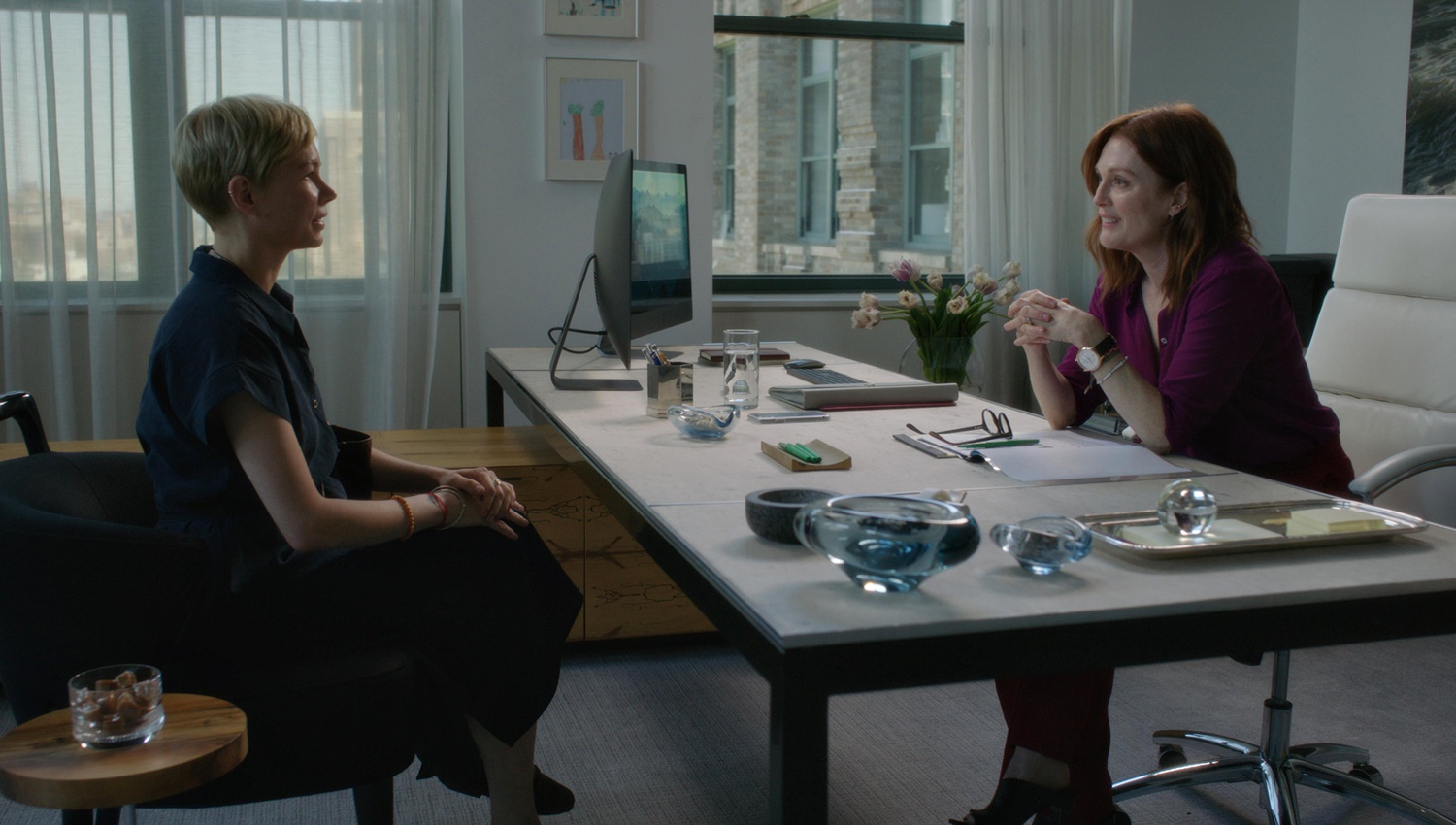
After the Wedding
Dustin Chase
After the Wedding is a rare film that is solely for mature sensibilities, no special effects, guns or killing. Powerful performances by Oscar-winner Julianne Moore and four-time nominee Michelle Williams are its selling point. If you don’t mind a script full of “only in the movies” plot twists, it’s also an engaging drama. Filmmaker Bart Freundlich (Moore’s husband) has made a catalog of almost-great films. He reunites Moore and Crudup from his sophomore feature World Traveler. After the Wedding is a gender-flipped remake of the same story, relocated from Copenhagen to New York for American audiences. Its lukewarm reception at the Sundance Film Festival isn’t a surprise, as most critics don’t like plot devices that are so obviously contrived, stories about rich white people problems, and women in authority who are stereotypically bitchy.
We find Isabel (Williams) running an orphanage in Calcutta for impoverished children. She has nurtured Jai (Vir Pachisia) since discovering him abandoned on the side of the road. In order to continue administering aid and care to the many children in need, she must travel to New York for funding. Theresa Young (Moore) has amassed a small fortune with her Media Placement Company. A powerful businesswoman, she still manages to be a mother of three and devoted wife. Young needs more time to look over Isabel’s proposal, insisting she attend her daughter Grace’s wedding over the weekend. “My work is all-consuming,” Isabel says explaining the reason she doesn’t have a family or attachments. Her reluctant appearance at the wedding comes as a shock to Theresa’s husband Oscar (Crudup), who hasn’t seen her for 21 years.
Still, despite its faults, the performances and the intrigue keep After the Wedding moving along to a conclusion that doesn’t invite much post-credit plot discussion.
The contrast between two lives, two worlds, and two women is quite intriguing as the film paints a portrait of one living in poverty with no shoes, to another jamming out to Lady Gaga in a luxury sports vehicle. Watching both Moore and Williams play out the frustrations they have for one another keeps the audience hungry for their next scene together. The trailer inaccurately suggests the film is more suspenseful or thrilling than it actually is. The plot twists and circumstances push the story deeper into such specific and borderline unrealistic territory, that it borders on soap opera antics. Moore’s overacting in a couple of scenes doesn’t help, but it’s Williams masterful art of internal performance that keeps re-grounding the film.
Freundlich gets a lot right, his visual illustration of the story is quite moving when combined with compelling cinematography and a fitting original score by Mychael Danna. It’s the script that swaps emotional investment for shock value. The editing and how the perspectives are cut together doesn’t do too many favors to the entire layout of the movie. There is little for general audiences to identify with: billionaire businesswoman, abstract artist husband, or Indian do-gooder. Still, despite its faults, the performances and the intrigue keep After the Wedding moving along to a conclusion that doesn’t invite much post-credit plot discussion.
Final Thought
Williams and Moore are the highlight in a script that’s overly contrived and severely unidentifiable.
